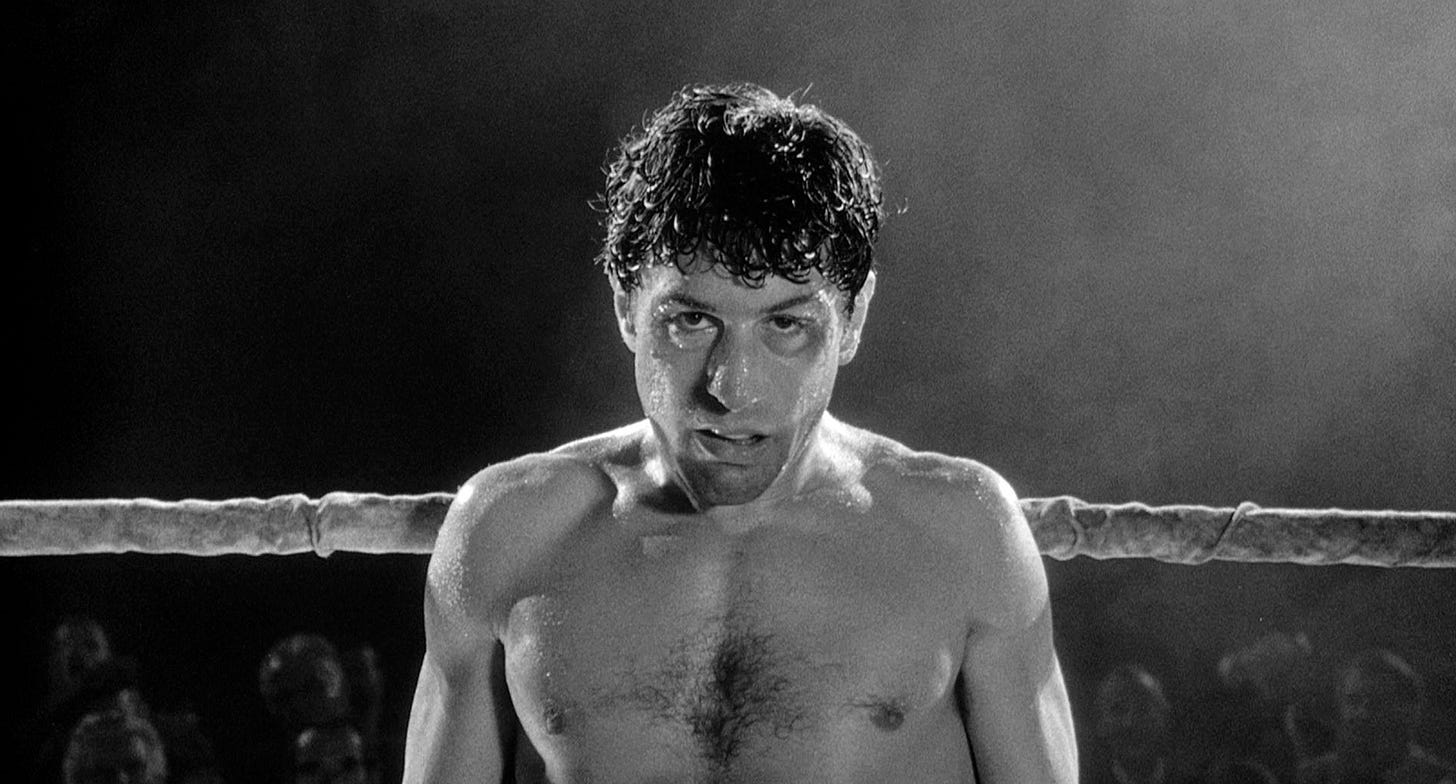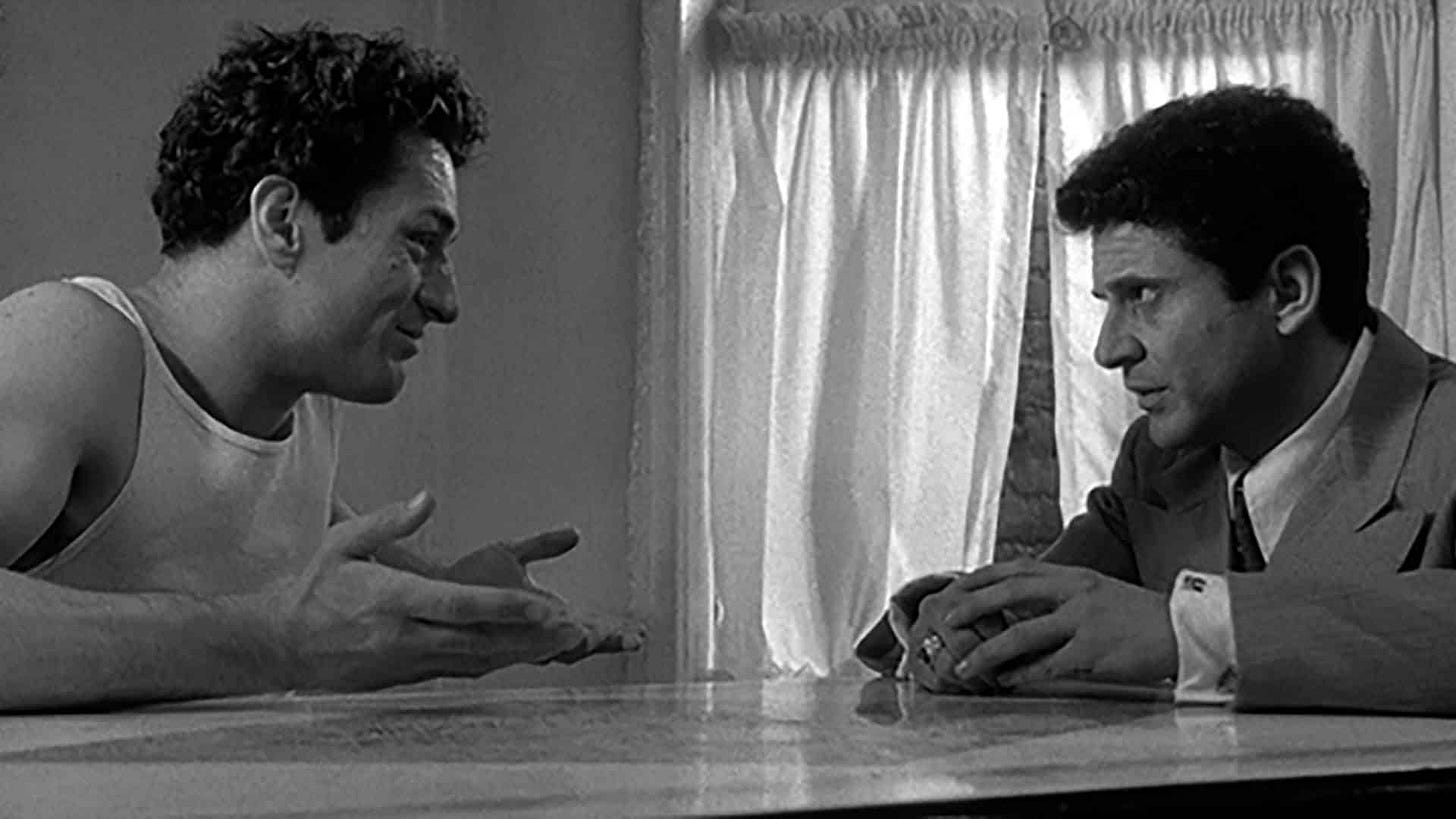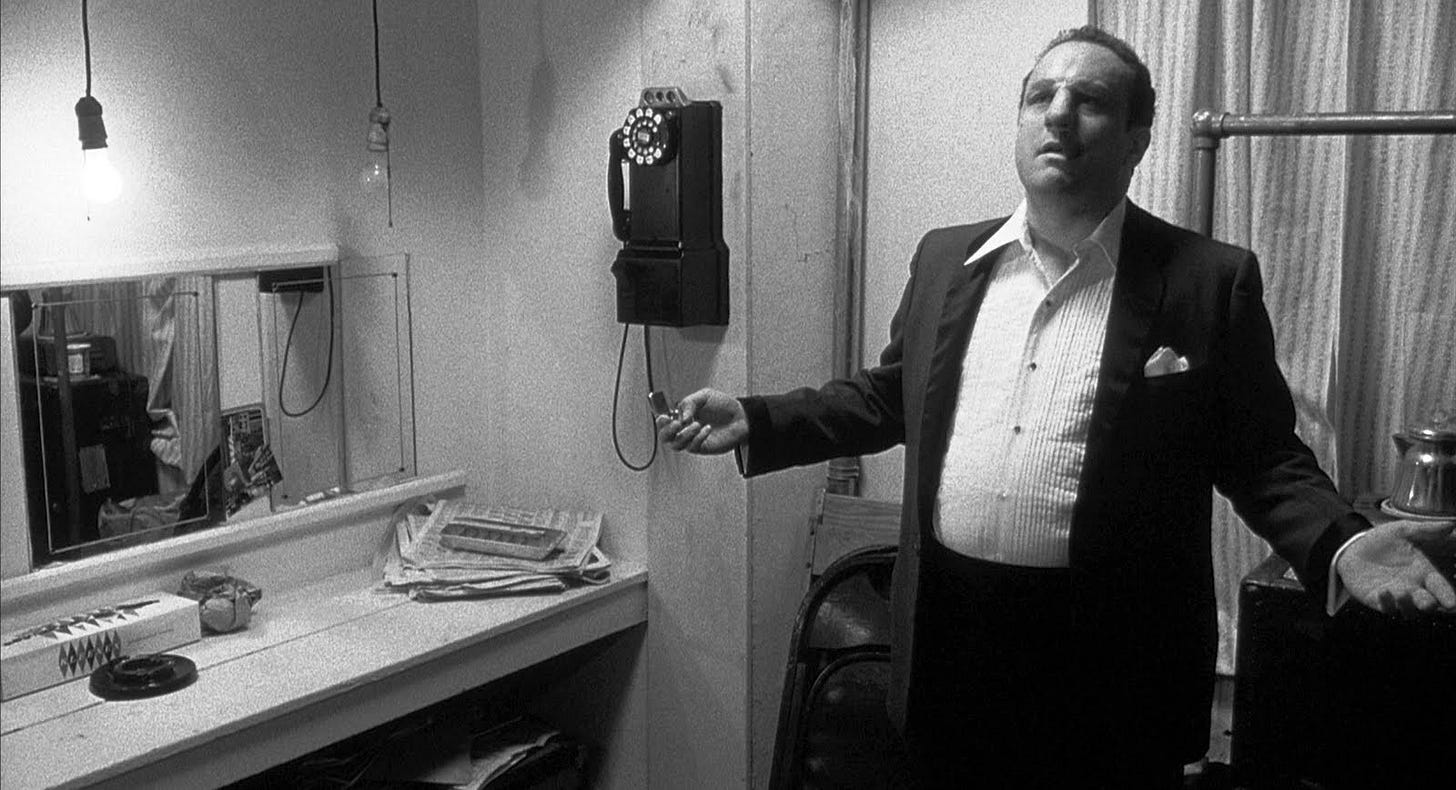The prisoner
#35 - ‘Raging Bull’
“Love is the greatest force in the universe,” said the great Martin Luther King, Jr. “It is the heartbeat of the moral cosmos. He who loves is a participant in the being of God.”
Jake LaMotta floats aimlessly in the negative space of this idea. He is a man incapable of anything that rises above the level of momentary infatuation. He certainly doesn’t love - not himself, not anyone else either. He has no connection to the “heartbeat of the moral cosmos,” and as a result, he’s a positively terrifying individual at the height of his boxing career.
He’s capable of furious violence and he has a hole in his heart that is impossible to fill. So, he’s perpetually on a hair-trigger, ready to smash a dish if his steak is overdone or a face if someone looks at him or his wife the wrong way. By the time he’s washed up, he cuts a more simply pathetic figure - still trying to fill that bottomless pit of need, but now lacking the talents that made people tolerate him before.
Raging Bull is an intimate film in every setting and in every way. It is a 360-degree portrait of insecurity and inadequacy. We can’t fathom the ocean-deep depths of it without seeing it at home and in the ring and on the side of the street and at the Copacabana. We can’t appreciate it without seeing it close up, literally, and so the camera of cinematographer Michael Chapman is trained as closely as it can be on stars Robert De Niro and Joe Pesci and Cathy Moriarty.
This makes it feel impossible to escape from De Niro’s LaMotta, as much as you will want to right from the jump. You are in so close that you feel as if you are about to be splashed by blood and sweat during his many championship fights. You feel like you can reach out and run your hand through De Niro’s wiry hair. There are multiple times where it can feel like you’re in a confessional, director Martin Scorsese using, for example, the fence at a community pool as a backdrop for sins about to be admitted or plotted or committed.
LaMotta’s perpetually activated fight-or-flight response is useful in the ring where his biggest asset is his ability to take punishment - to stand in longer than anyone else is willing. In his personal life, this dynamic is flipped. LaMotta will take any slight - perceived or real - and turn it in to a championship bout of sorts. Who wants to stand in with him for that sort of punishment, though?
Scorsese is quite literal about this in one of the first scenes of the film when Jake exhorts his brother and manager Joey (Pesci) to hit him as hard as he can again and again and again. Joey doesn’t want to do it, but it’s clear Jake will never let it go, and so Joey ends up pounding away, all the while subject to verbal abuse because he’s not hitting hard enough. It’s clear in that moment that it - whatever it is - will never be enough for Jake LaMotta.
In a fight, the bell always rings. In life, it never does. The rest of the film flows from this basic insight. It is one long reflection of LaMotta bringing the dynamic of the ring in to his real life, and the disastrous consequences of being that on edge at all times. It is haunting in the fleeting moments where things almost seem normal - none more haunting than the home movies that fully blunt and silence Jake’s combativeness - and it is deeply discomforting the rest of the time.
The question Raging Bull poses is what to do with men like Jake LaMotta. The film offers one possible answer: wait for a man like this to self-destruct and then isolate them in an actual prison that reflects the more metaphorical prison they already occupy.
LaMotta’s outside-the-ring behavior drives would-be allies away. His boxing talent wanes. Things get weirder and sadder than you can possibly imagine. He tries to hold on to his celebrity - his flabby belly and his total lack of charisma rendering that pursuit impossible. Eventually, he ends up where he probably most belongs: in jail, cordoned off from the rest of us.
Another way to deal with the Jake LaMottas of the world - the more charitable way - is lots of therapy and psychoanalysis. Heal this man. Get him to empathize with those around him by better understanding and regulating his own emotions.
A few years ago, the idea of redeeming Jake LaMotta would have held more appeal. Now, in a moment where the executive branch of the United States government has been hijacked by a bunch of LaMottas, redemption stories seem less plausible and much more like a suicide mission. Walling these people off from the rest of us feels safer and more prudent.
Much of the armchair psychoanalysis of Donald Trump centers on his zero-sum worldview, imparted and hardened by the likes of his father and Roy Cohn. The idea is that he’s incapable of imagining a win-win transaction and so he seeks to dominate everyone around him, even if the stakes are small or he is flat-out wrong or out of his depth. It is an armchair diagnosis that certainly applies to Jake LaMotta. He even rants, at one now-surreally-prophetic moment, about the size of his hands.
Living with a LaMotta-type as the leader of the free world is more than enough to convince you that some people are not fixable. Where there is no love, there is no “heartbeat of the moral cosmos.” There is only destruction.





